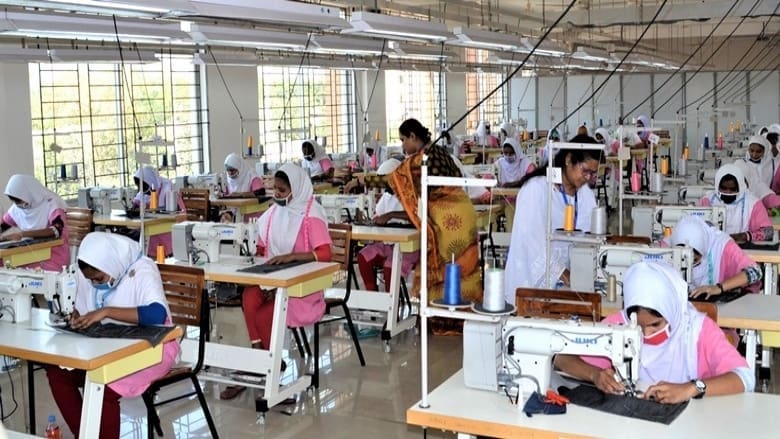Since the last week of October, Bangladesh has seen its 4.4 million-strong ready-made garment (RMG) sector workers demanding a significant increase in their minimum wages. The workers, who form one of the country’s largest labour forces, want their wages to be tripled from 8,000 Bangladeshi Taka (BDT) to 23,000 takas. Fueling the unrest, Bangladesh’s main opposition party, Bangladesh Nationalists Party (BNP), initiated a two-day general strike, calling for the resignation of the current government and new elections under a caretaker government. The Election Commission’s announcement of elections on January 7, 2023, has been rejected by all opposition parties.
The Significance of Fast Fashion in Bangladesh’s Economy
Bangladesh holds the title of the world’s second-largest exporter of fast fashion, accounting for 85% of the country’s export earnings of $55 billion in 2022. The sector is vital for Bangladesh’s economy, employing millions, mainly rural women. By contributing to poverty reduction from 44.2% in 1991 to 5% in 2022, the RMG sector has been instrumental in the country’s development. Its major markets include the United States, the United Kingdom, Europe, and Canada, with prominent brands such as H&M, Levi’s, and Zara leading the imports.
Causes of the Workers’ Protests
The workers’ protests have been brewing for several years due to the steady rise in inflation exacerbated by the COVID-19 pandemic and fluctuating oil prices. The Bangladesh Bank recorded inflation at 9.37% in October 2023 compared to 7.23% the previous year. Rising costs of essentials like food and fuel have pushed workers to demand higher wages to cope with the surge in living expenses. The minimum wage proposed by the government fell short of their expectations, triggering further discontent among the workers.
Role of Brand Importers in Addressing the Crisis
Key global brands, including H&M and ESPIRIT, are part of a coalition called ACT, which aims to support a living wage in Bangladesh’s RMG sector. Their commitment to promoting industry-wide collective bargaining agreements has been met with scepticism by worker unions who seek substantial changes in brands’ purchasing practices to ensure fair wages for workers. A significant increase in procurement costs by these brands could provide a lifeline for the struggling RMG SMEs in Bangladesh and boost workers’ wages.
RMG Sector’s Carbon Emissions and Climate Resilience
The fashion industry’s contribution to global greenhouse gas emissions has prompted a shift toward decarbonizing supply chains. Bangladesh’s RMG sector alone accounts for more than a quarter of the country’s total emissions. The sector’s inefficient use of energy, outdated machinery, and poor energy management present barriers to improving energy efficiency and reducing carbon emissions. While Bangladesh has made strides in obtaining green building certifications, more efforts are needed to achieve its target of a 15% reduction in emissions by 2030.
Challenges and Opportunities for the Indian Garment Export Sector
Bangladesh’s labour issues may lead to a potential upswing in demand for India’s garment exports. With Bangladesh grappling with higher labour costs and inflation, India has an opportunity to capture a larger share of the global garment market. However, Indian companies must focus on building scale, competitiveness, and continuous improvement to effectively compete with countries like Bangladesh, Pakistan, and Cambodia.
Testing Times Ahead for Sheikh Hasina’s Government
The upcoming general elections in January 2023 pose a significant challenge for Sheikh Hasina’s government. As the longest-serving female head of state in history, Hasina’s leadership will be put to the test as she navigates the demands of the RMG workers while addressing political and economic challenges, including inflation and a decline in foreign exchange reserves. Handling the worker grievances and ensuring the fulfilment of brand promises on procurement practices will be crucial to maintaining her political standing.

